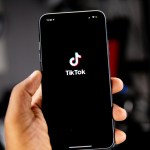News
The Scandinavian trio have worked together to deliver network sharing from 2G to 5G across diverse cores
One thing all mobile network operators would agree with is this: 5G is not cheap. From expensive equipment to pricey spectrum, you need deep pockets if you are to harbour 5G ambitions.
Network sharing has long ben posited as a potential solution to mitigate some of these costs, but the practicalities of implementing this idea are often complex and limited by available technology.
Yesterday, network sharing on a grand scale became much more viable, with the Nordic trio of Telenor, Telia, and Nokia announced the successful testing of a multi-operator core network (MOCN) in Denmark. The new technology allowed Telia and Telenor, with their distinct core networks, to share a mutal RAN network, as well as spectrum. The solution worked from 2G to 5G, facilitating a range of services including calls.
“We were among the first operators in the world to use MOCN on our network, and I am very pleased that we also are among the first ones to use the technology in our 5G-pilot as well. Network sharing is a clear strategic priority for Telenor,” said Telenor’s CTO Georg Svendsen.
This sort of network sharing has many benefits for operators, drastically lowering the expenditure on RAN equipment and network operation during a 5G rollout. It is also good for the environment, requiring far less power than two separate networks – which also means a smaller energy bill for the operator.
Many markets are looking to explore network sharing options around the world, often at the behest of national regulators, who want to avoid unnecessary infrastructure installation. Germany is a prime example, where Vodafone, Deutsche Telekom, and Telefonica have each agreed to build and share 2,000 new sites to cover so-called ‘white spots’ that currently receive no coverage. MOCN could be a very attractive solution for these operators.
For Nokia, who have perhaps been the least resistant to the idea of shared RAN of the big three vendors, further development of network sharing technology could be a profitable angle for business growth.
"We hope that this trial demonstrates to operators around the world that there are multiple options open to them to get their 5G networks up and running quickly and at the lowest possible cost," explained Tommi Uitto, president of mobile networks at Nokia, perhaps looking to poach some new business from politically embattled rival Huawei.
As 2020 sees the widescale rollout of many more 5G networks, it seems likely that many more network sharing deals and technologies will begin to emerge.
Also in the news:


















